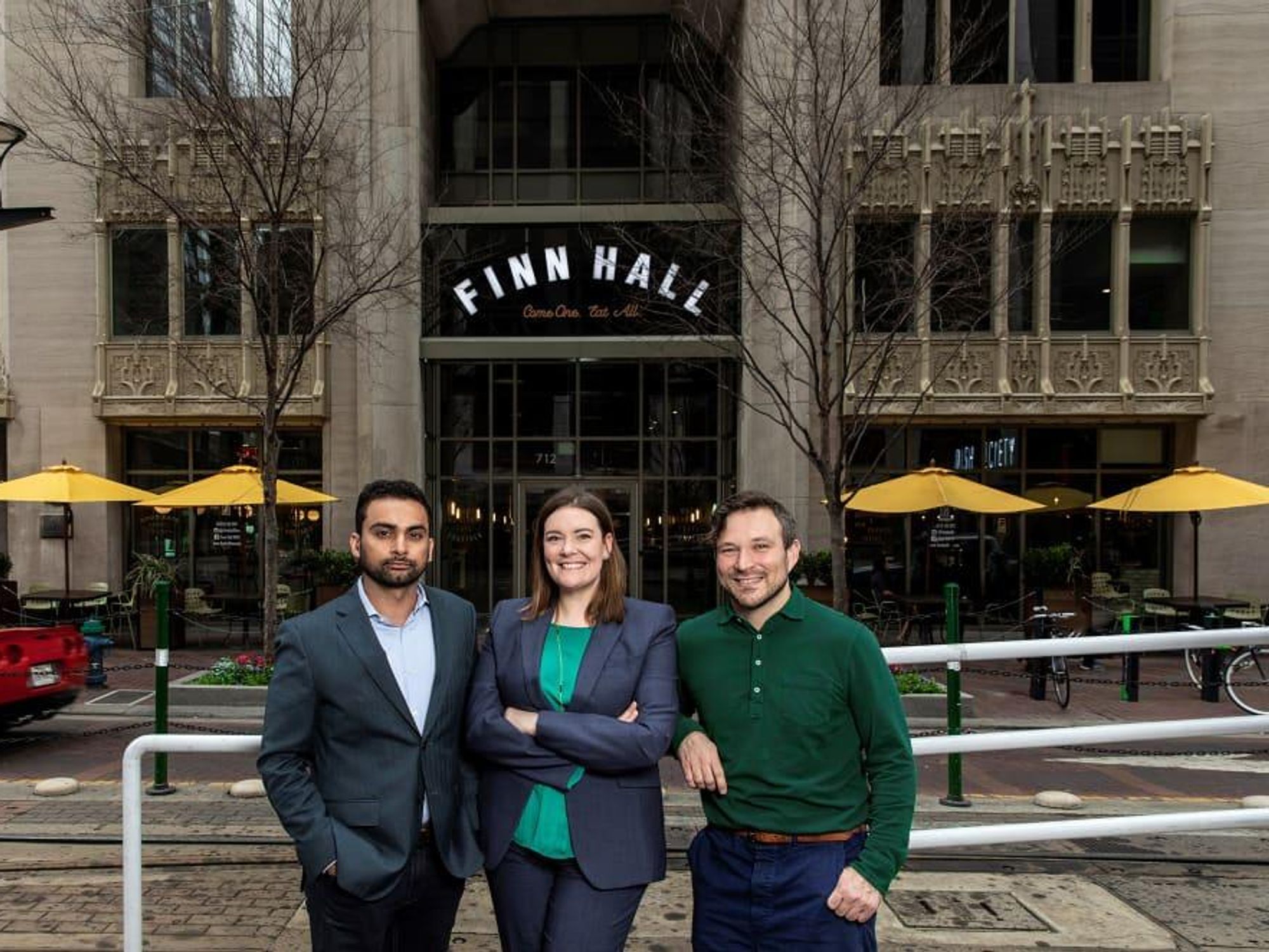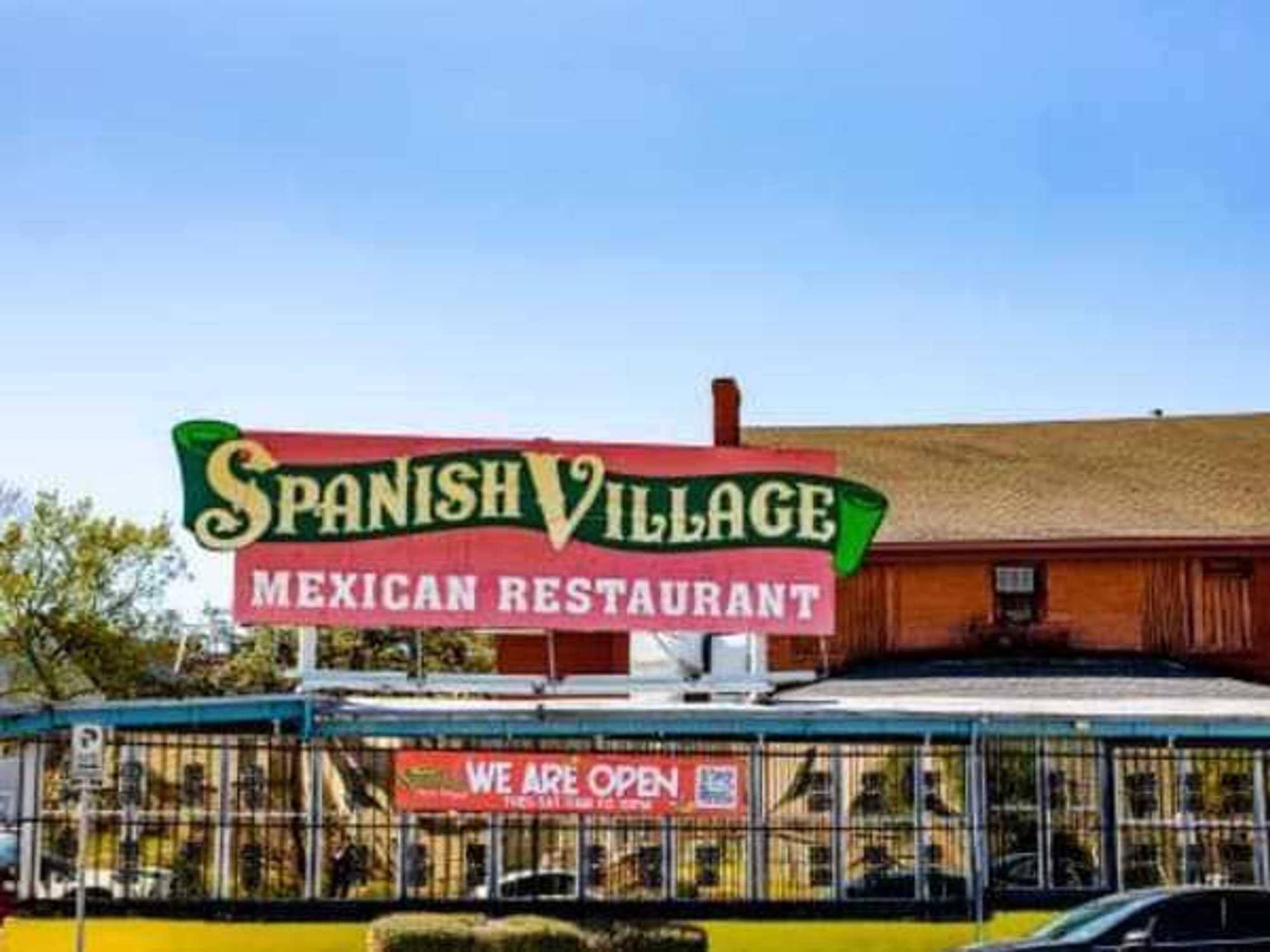Finn Hall 2.0
Downtown food hall reboots with 3 tasty new concepts and better values

Finn Hall is getting a reboot. Opened in December 2018, the downtown food hall has new life thanks to a new culinary director, three new tenants, and a new financial model that’s designed to make it more successful for its ten vendors.
While these changes have boosted Finn’s prospects to achieve the goals that its corporate parents — property management firm Midway and real estate investment firm Lionstone Investments — have for the food hall, one vendor who suffered under the old regime is speaking out about all the original promises that she says weren’t kept.
Out with the old
In November, Midway and Lionstone quietly removed Oz Rey, LLC as the food hall’s operator. Both Hunain Dada, Lionstone’s real estate portfolio management director for the property, and Miranda Cartwright, Midway’s senior property, explain that Oz Rey was removed for “non-performing” on its lease obligations. It brought an end to a rocky tenure that saw the departure of Mala Sichuan, one of Houston's most-acclaimed Chinese restaurants. Now, Midway is operating the food hall directly without an extra layer of management that increased operating costs.
“What we were able to do was take all these third party things that the management company billed to the operators and basically gave them a smaller margin of profit,” Cartwright says. “We were able to give them a larger share of profit and lower costs because we stripped out the middle man.”
In Oz Rey’s place, they brought in Greenway Coffee owner David Buehrer to serve as Finn Hall’s culinary director. The barista/entrepreneur might seem like an unlikely choice to lead a food hall, but he has a track record linking property managers with future tenants, having helped recruit Feges BBQ, The Rice Box, and burger-chan to join Greenway Plaza. By removing Oz Rey as the middle man between the property and the vendors, Finn was able to reduce the lease rate from 30-percent of gross sales to 20-percent.
“It’s huge,” Buehrer says. “I think that’s the difference between success and failure in a small business is that 10-percent margin.”
In with the new
Armed with better terms and sales data from the food hall’s vendors that allowed him to demonstrate its viability, Buehrer recruited three new concepts to join Finn. They are:
- Lit Chicken, an African-influenced fried chicken restaurant from former Kitchen 713 chefs James Haywood and Ross Coleman
- Papalo Taqueria, a Mexican restaurant from chefs Stephanie Velazquez and Nicholas Vera, best known for their Tlahuac pop-up series
- Pho Binh, a downtown version of chefs Kevin Pham and Di Nguyen’s celebrated Chinatown restaurant Pho Binh by Night
Lit opened this week. Papalo will follow next week. Pho Binh will open by April 1.
The new additions represent a serious injection of culinary talent. Buehrer has been advocating for Pho Binh for over 10 years, bringing the restaurant’s original location in south Houston to the attention of critics and diners, who’ve consistently ranked it as one of Houston’s best Vietnamese restaurants. Haywood and Coleman earned a James Beard semifinalist nomination for Kitchen 713. Beyond that, he’s particularly excited about Papalo.
“That was the best food I had in 2019 was Tlauhac when they were at Greenway,” Buehrer says. “Stephanie, her and Nick worked at Underbelly back in the day. I think they’re going to be James Beard-level quality.”
Outgoing vendor’s dispute
To make way for them, Goode Co. Taqueria and Vietnamese restaurant Sit Lo are leaving Finn. Adrienne Le, the owner of Sit Lo, tells CultureMap that she’s upset about the way she’s been treated. Specifically, that Oz Rey kept her $15,000 security deposit after Midway removed the operator from Finn, and that her attempts to contact the former management company have been unsuccessful.
“Overall, we feel like we weren’t given a chance to be successful. Oz Rey wanted so much, and they disappeared with their money,” Le says. “Now, the rug has been pulled out from under us, and we have to leave in March.”
Le will move forward with Sit Lo’s second location in Sugar Land, but the loss of $15,000 stings. She notes that Oz Rey never fulfilled other promises it made, such as providing delivery. Since Oz Rey's removal, Finn Hall tenants are allowed to use third-party delivery apps like DoorDash and UberEats.
“We are continuing to work with them,” Cartwright says about Sit Lo. “We’ve put her in contact with the old management company to try to get their security deposit back. We really feel like it was a hard decision, but we’re super supportive of Sit Lo.”
Dada notes that Midway and Lionstone did try to mitigate some of the losses that Finn’s vendors suffered during Oz Rey’s tenure by giving them one month of free rent and reducing their rental rates going forward. Shannen Tune, chef-owner of Craft Burger in Finn Hall, says those concessions did help his business.
“Had they given me two months of free rent, I would have recouped everything,” Tune says. “As far as I’m concerned, they did enough. They didn’t have to do anything.”
Craft Burger — along with vendors Low Tide (a seafood restaurant from Harold’s in the Heights), Dish Society, Yong (a Korean restaurant), Oddball Eats (a Mediterranean restaurant), Pizza Zsquare, and Amaya Coffee — will remain at Finn Hall with new leases under the new, 20-percent rate.
Buehrer acknowledges that he thinks each one can generate at least $60,000 a month in revenue. Le calls it an “impossible number” that Sit Lo couldn’t achieve without charging more than customers are willing to pay for Vietnamese food, but Tune says that’s his “low average” for Craft Burger.
“I think it’s very realistic, as a low model,” Buehrer says. “Hopefully, with James and Ross, Nick and Steph, and Pho Binh, food traffic goes up. All of the vendors have increased sales because of that.”
Finn Hall's future
Finn Hall still has some challenges to overcome, especially parking. Being located on the rail makes that an easy way to get to the food hall, but street parking in the area can be limited. Lionstone owns a parking garage at 803 Fannin that’s just a block away from Finn, but the rate isn’t subsidized for food hall patrons. Cartwright acknowledges that parking downtown can be a challenge and that they’re working on developing a more economical solution.
Pricing at food halls can be a challenge, too. Le says her prices in Sugar Land are approximately “50-percent less” than what she charges at Finn, but the revenue numbers are the similar. Buehrer says that reducing the rental rate should allow vendors to charge less for their food, and that he’s encouraging all of the restaurants to offer at least one, approximately $10 lunch option that could appeal to the office tenants above Finn.
“The goal is to help people uplift their operation, but [price is] a big part of the conversation when we’re moving in new tenants,” Buehrer says. “Have your awesome, award-winning, whatever it is, but also try to be mindful that people are trying to come here five days a week.”
A new marketing team has plans to update the food hall's website with a current list of vendors and their menus. The social media accounts are back on a regular posting schedule.
Buehrer has a vision for other changes he’d like to make, including improving the lighting, changing up the mix of seating, and installing an exterior sign that would catch people’s attention from the street. He’s also looking for a new operator for the food hall’s two bars.
Ultimately, the goal is to make Finn a dining destination, an amenity for downtown office workers, and a place that’s profitable for both landlord and tenants. While Oz Rey’s model expected a certain amount of turnover, the new management team hopes for more stability among the vendors.
“We’re kind of flipping the food hall model on its head. Everyone talks about them being an incubator and the churn,” Cartwright says. “If they’re successful, let’s be supportive. If they’re making sales and they have loyal customers and it keeps people coming back to the food hall, let’s sign a five-year deal.”
